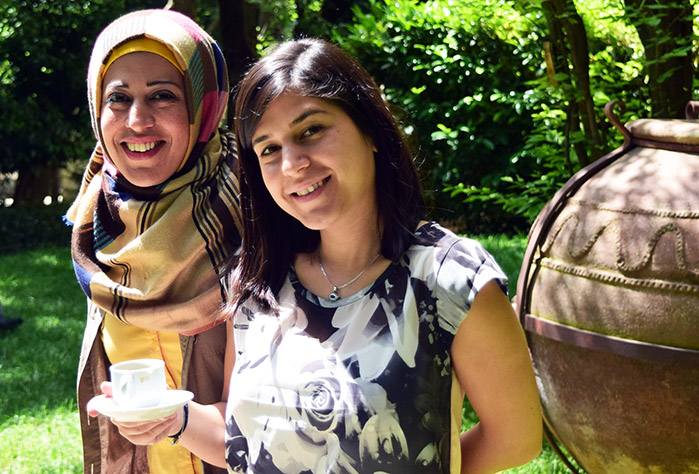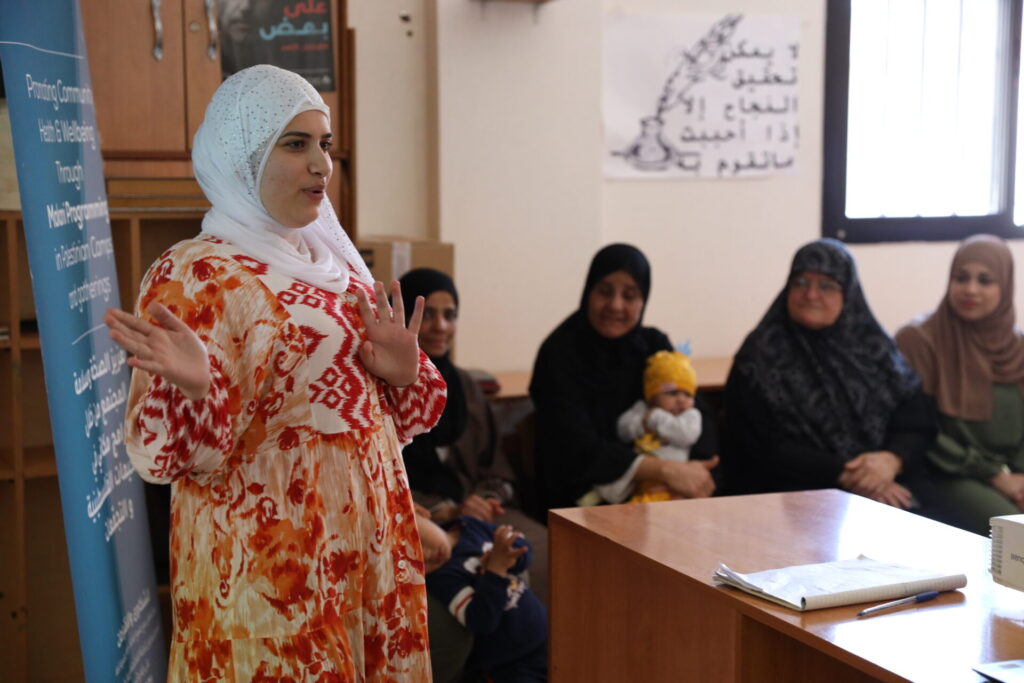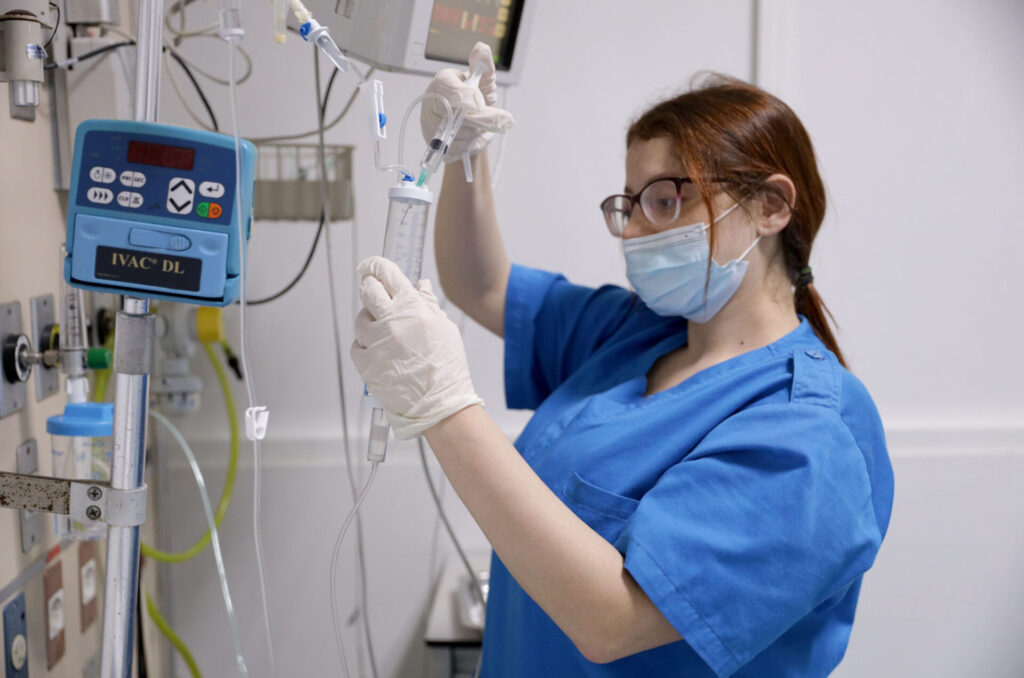Sep, 2015
“Growing up in a family that has deep ties with Palestine, I was constantly sensitized to the situation of Palestinians in Lebanon and their struggle in the camps...
... My family experienced financial and social difficulties and shared some of the same struggles Palestinians suffer today,” explains 29-year-old Nadine Abdallah, Anera public health specialist in Lebanon.
“In 2002, I was selected to attend the United World College, an international high school in the United States, and I stayed on to pursue a college degree in biology,” Nadine continues. “I wanted to go to medical school. That all changed after the 2006 Israeli attack on Lebanon. I realized that health is not restricted to the absence of illness, but is also a social issue.”
Nadine realized that health problems in communities are related to several factors that cannot be ignored, including the political, social and economic environment. “So I shifted from medicine to public health because I believe the key to good health is treatment combined with preventive measures and advocacy.” Nadine adds, “I remained in the US after getting my bachelor’s degree and worked in medical research for a while, but I felt I could be more effective if I returned home to Lebanon and pursued graduate studies in public health.”


I realized that health is not restricted to the absence of illness, but is also a social issue.
Promoting Good Health In Lebanon through Education
Nadine joined Anera in 2013 and immediately became involved in Anera’s community based health education projects where she is in charge of organizing and designing health interventions in coordination with local partners in Palestinian camps across Lebanon. Campaigns she’s organized to improve health in Lebanon include an anti-steroids campaign, hygiene promotion for refugee youth from Syria, a health-oriented co-project with UNICEF, and capacity building workshops for local health workers and community leaders.
The challenge of Lebanon’s public health sector is its impact: whenever you conduct a public health campaign, it is nearly impossible to measure its success in terms of the number of lives saved,” Nadine says, “Public health professionals are known here as the silent warriors.”


This year, Anera’s health education initiatives in Lebanon reached out to more than 3,800 adolescents, teachers and social center facilitators. Youth-related positive health and hygiene topics were taught through training sessions, distribution of health pamphlets, awareness events and interactive theater performances.
“During our fieldwork, we face a lot of obstacles that seem impassable at the beginning,” Nadine admits, “But when we interact with the community and organize focus groups, I see the barriers start to fall. Our work is tiring, sometimes draining, but when your colleagues give you constant support, you feel the positive vibes and the warmth of a family.”




